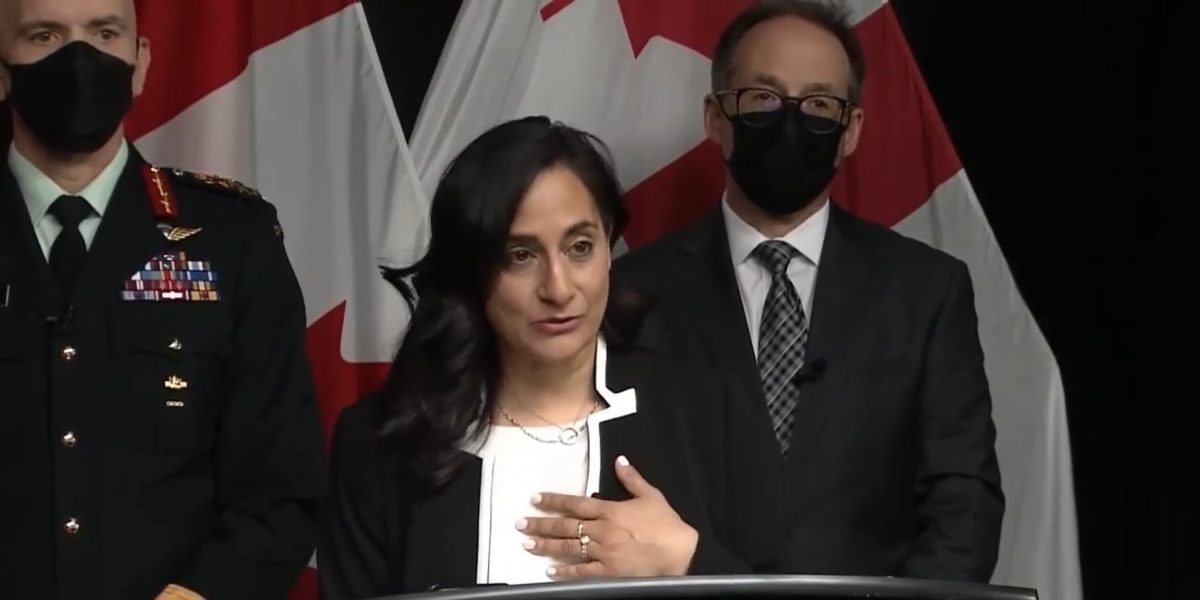The Centre on Hate, Bias, and Extremism at Ontario Tech University and the Canadian Anti-Hate Network are both calling on the Canadian Forces to follow-up on a recent report on extremism and systemic racism with concrete action.
The Centre on Hate, Bias, and Extremism works to advance awareness, understanding and prevention of hate, bias and extremism through evidence-based research.
The Canadian Anti-Hate Network monitors, researches, and counters hate groups and hate crimes in Canada. Released on Monday, April 25, the report slams the Canadian Forces for lacking diversity and inclusivity, and makes clear that these problems are systemic.
Directly addressing white supremacy
Number five of the 13 recommendations in the report deals directly with white supremacy.
“The Defence Team is not immune to infiltration by these extremist groups and some units and departments may even be more vulnerable given their isolation from large metropolitan areas,” the report reads.
The report goes on to warn that the suspected presence of extremist groups represents not just a moral issue, but an operational one as well. It continues:
“Individuals in the Defence Team who subscribe to white supremacist ideology are anathema to the ideals and aspirations of the Defence Team and, moreover, are corrosive to unit cohesion. Their presence also threatens the trust of the Canadian population in the Defence Team.”
The report states that the effort to keep white supremacists, and other groups that fall under the category of Ideologically Motivated Violent Extremism (IMVE), were currently inefficient in the Defence Team [say Canadian forces or military instead of Defence Team] and called on greater co-operation between the military and outside partner organizations.
“Members of the Defence Team must be knowledgeable in recognizing signs of extremism, white supremacy and hateful conduct. They must be aware of appropriate actions to take to counter IMVE,” the report says.
Dr. Barbara Perry, Director of the Centre on Hate, Bias and Extremism, believes that this part of the report in particular could have gone further to address the problem of white supremacy.
“I think that you can’t just leave it to law enforcement and intelligence organizations,” she says. “I think you need to partner with other groups who are monitoring this in other spaces.”
Perry adds that she feels that the issue requires someone whose sole portfolio is to monitor the issue of white supremacy within the Canadian Forces.
Bernie Farber, Chair of the Canadian Anti-Hate Network, says that to solve the issue of white supremacy in the military, the Canadian Forces will need to get to the heart of the issue.
“It has to begin from the recruitment stage,” Farber said. “Stem it right at the root.”
He added that signs of extremism was something that Canadian Forces recruiters will need to be trained to recognize.
A gap in representation within the Canadian Forces
The report states that not only is the make-up of the Canadian Forces not representative of the diverse Canadian cultural identity, but that the problem may be getting worse.
“The gap between Canada’s diversity and the Defence Team’s representation of this diversity seems to be growing so that any progress made to date for inclusion of women, Indigenous, Black, other racialized and ethnic communities, persons with disabilities and members of the LGBTQ2+ community risks reversal,” the report reads.
The report goes on to state that these systems are rooted in European colonization.
Some of the changes to the Canadian Forces that the report recommends include improving education around reconciliation, promoting the history of Black service personnel and improving efforts to recruit from diverse communities and more.
Strong words, but will there be follow through?
Despite the promises made in the report, anti-hate advocates remain skeptical.
“I’m of mixed feelings,” says Farber. “It is one of many (reports) that have come down through the system in the past 25 years.”
Farber referred to a report released in the wake of the so-called Somalia Affair. In 1993, members of the Canadian Airborne Regiment tortured and killed a teenager in Somalia while they were posted there as a part of a U.N. humanitarian mission. That report led to the disbandment of the Canadian Airborne division, but issues with extremism and racism continue to persist in the Canadian Forces.
Farber does have some hope that this latest report would have an impact.
“This was an extremely important report because it comes down from military people and uses really strong language,” he says.
Others aren’t convinced.
Dr. Perry remains underwhelmed by the contents of the report.
“I thought it was a little thin,” Perry says. “Journalists have been referring to this as a ‘scathing’ report. I didn’t see it that way. I thought it was rather muted.”
She feels that the recommendations in the report are fairly simple, and do not indicate any sort of broad structural shift or cultural change in the organization.
“We at least have a policy on right wing extremism, so that is some progress,” Perry says.



